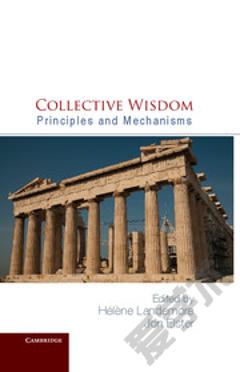Collective Wisdom: Principles and Mechanisms
James Madison wrote, 'Had every Athenian citizen been a Socrates, every Athenian assembly would still have been a mob'. The contributors to this volume discuss and for the most part challenge this claim by considering conditions under which many minds can be wiser than one. With backgrounds in economics, cognitive science, political science, law and history, the authors consider information markets, the internet, jury debates, democratic deliberation and the use of diversity as mechanisms for improving collective decisions. At the same time, they consider voter irrationality and paradoxes of aggregation as possibly undermining the wisdom of groups. Implicitly or explicitly, the volume also offers guidance and warnings to institutional designers.
{{comment.content}}








 京公网安备 11010802027623号
京公网安备 11010802027623号